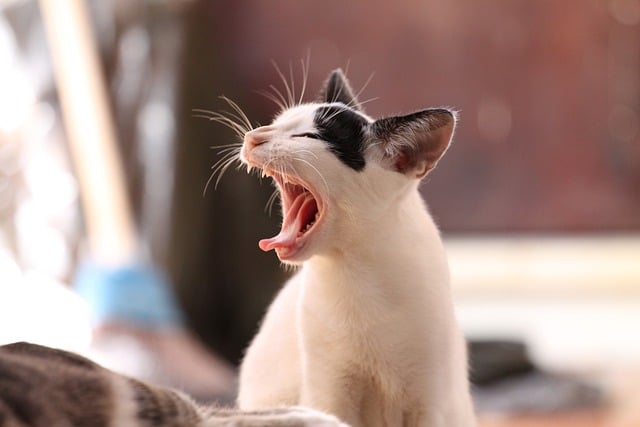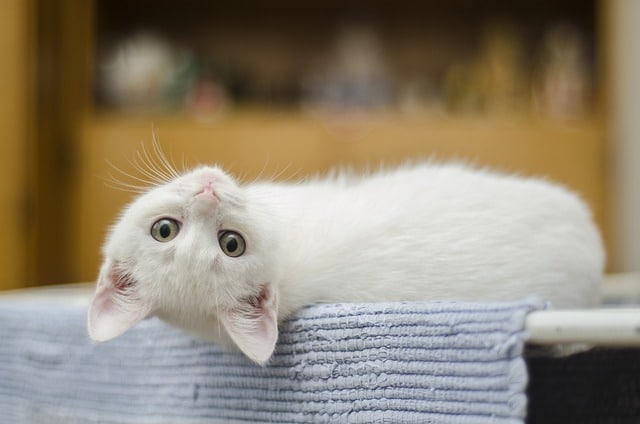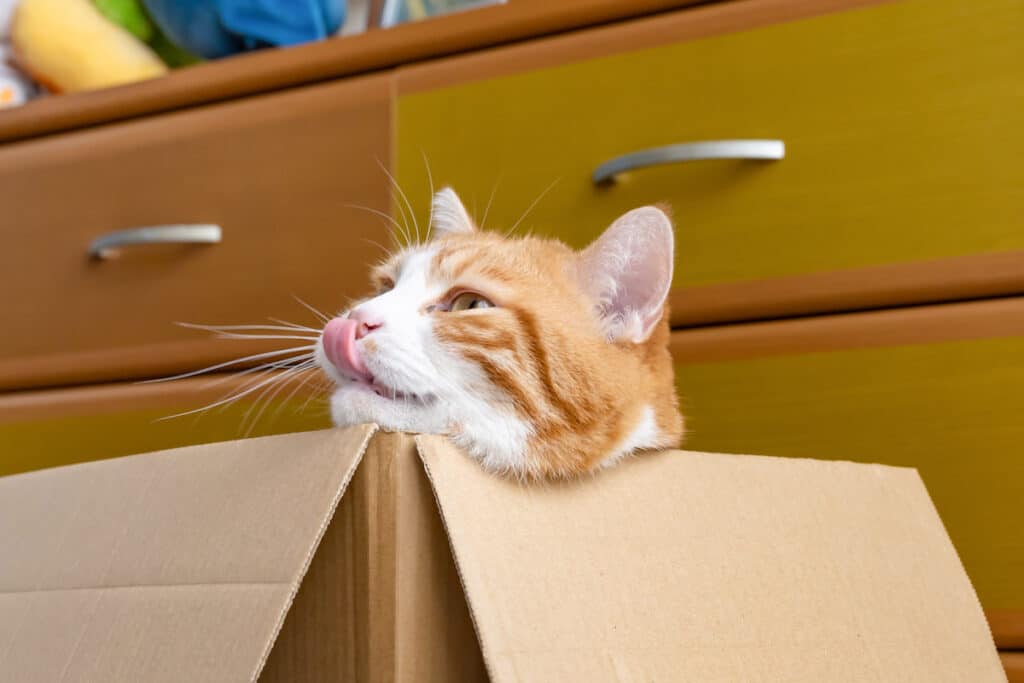Cats are known for their quirky behavior and mysterious nature, but one behavior that has puzzled cat owners for years is why cats vomit. Some people believe that cats vomit for attention, but is this true? In this article, we will explore the reasons why cats vomit and whether or not it’s for attention.
Reasons for Vomiting in Cats
There are many reasons why cats vomit, including hairballs, digestive issues, eating too quickly, and even stress. Some medical conditions such as inflammatory bowel disease, liver disease, and kidney disease can also cause cats to vomit. It is important to take your cat to the vet if they are vomiting frequently or if there are any other symptoms present. Here are a few other reasons for vomiting in cats:
- Gastrointestinal Issues: One of the most common reasons for vomiting in cats is digestive problems such as hairballs, indigestible foreign objects, or inflammation of the digestive tract.
- Food Intolerance: Some cats may have food allergies or intolerance which can cause them to vomit after eating.
- Parasites: Cats can sometimes get infected with parasites like worms which can cause vomiting.
- Infections: Upper respiratory infections, urinary tract infections, and other types of infections can also lead to vomiting in cats.
- Liver or Kidney Diseases: Chronic liver or kidney diseases can result in nausea and vomiting in cats.
- Cancer: Cancer, especially stomach cancer, can cause vomiting in cats.
- Motion Sickness: Just like people, some cats can experience motion sickness which can cause them to vomit.
- Stress: Stress and anxiety can also trigger vomiting in cats.
- Medications: Certain medications can cause vomiting as a side effect.
- Over Eating: Eating too much too quickly or consuming certain types of human food can cause vomiting in cats.

Do Cats Vomit For Attention?
As for the question of whether cats vomit for attention, the answer is no. Vomiting is not a deliberate behavior, and cats don’t do it to get attention. In fact, most cats prefer to hide when they are feeling unwell and will only seek attention if they are in severe pain or discomfort.
It’s essential to understand that vomiting is not a behavior that can be trained or controlled by the cat. If your cat is vomiting frequently, it’s crucial to provide them with a clean and comfortable place to rest and to give them plenty of fresh water to drink. Additionally, if you suspect that your cat is vomiting due to a change in diet or because of hairballs, you can try giving them food that is easier to digest, or a hairball remedy, respectively.
Attention Seeking Vomiting in Cats
It is rare for cats to vomit specifically for attention. Most cats are independent animals and prefer to keep their illness to themselves. If your cat is vomiting frequently and there are no other symptoms present, it is possible that they are experiencing stress or anxiety. In these cases, it is important to identify the source of the stress and work to resolve it.

Other Ways Cats Try to Get Your Attention
Cats are known for being independent creatures, but they also love to seek attention from their owners. Here are some common ways that cats try to get your attention:
- Meowing: Cats have a variety of meows, each with its own meaning. Some meows are demanding, others are pleading, and some are just plain cute. Cats may meow to signal that they are hungry, want to be petted, or just want to chat with their owners.
- Bringing you “gifts”: Cats are natural hunters and may bring you “gifts” in the form of small toys, leaves, or even prey. This is a way for them to show their affection and also to engage with you in play.
- Bumping their head against you: Cats have scent glands on their forehead, and bumping their head against you is a way for them to mark you as their own and to show affection.
- Purring: Purring is a sign of contentment and comfort, and cats may purr when they are being petted or cuddled. This is their way of saying, “I’m happy, and I love being close to you.”
- Following you around: Cats love to be near their owners and may follow you from room to room or even into the bathroom. This behavior shows that they are interested in what you are doing and want to be near you.
In conclusion, cats have a variety of ways to get their owners’ attention, and it’s important to pay attention to their body language and vocal cues to understand their needs and wants. Whether they are meowing, bringing you gifts, or just following you around, your cat is always trying to connect with you and show you how much they love you.
Conclusion
In conclusion, while cats can use vomiting as a form of communication, it is not usually for the purpose of seeking attention. There are many reasons why cats vomit, and it is important to take your cat to the vet if they are vomiting frequently or if there are any other symptoms present. By understanding the reasons why cats vomit, you can provide your furry friend with the proper care and attention they need.
FAQs: Do Cats Vomit for Attention?
While it is true that some animals may display attention-seeking behavior, such as barking or meowing excessively, it’s unlikely that cats would get sick just to get some extra cuddles or affection from their owners. Cats are generally low-maintenance pets that prefer to spend most of their time alone, and getting sick would go against their instinct for self-preservation.
However, there are instances where a cat’s behavior may give the impression of seeking attention. For example, if a cat is feeling stressed or lonely, they may start acting out by eliminating outside of the litter box, scratching furniture, or engaging in other destructive behaviors. This behavior is not necessarily because they want attention, but because they are trying to communicate a need for comfort or security.
It’s important to understand that cats do not have the ability to consciously control their digestive system. Vomiting is usually a sign of an underlying health issue such as gastrointestinal distress, eating too quickly, hairballs, or eating something they shouldn’t have. If your cat is vomiting regularly, it’s important to consult with a veterinarian to rule out any underlying health problems.
However, some cats may vomit due to behavioral issues such as stress or anxiety. For example, if your cat is feeling anxious or stressed, they may start to groom themselves excessively, which can lead to hairballs and subsequent vomiting. In this case, the vomiting is not intentional, but rather a result of their behavior.
Behavioral vomiting in cats is often caused by a condition known as psychogenic vomiting. This type of vomiting occurs when a cat is experiencing stress or anxiety, causing them to throw up their food or other stomach contents. Some common causes of psychogenic vomiting in cats include changes in their environment, new pets or people in the home, or even changes in their daily routine.
In order to determine whether your cat’s vomiting is behavioral or medical, it’s important to pay attention to the timing and frequency of their episodes. Behavioral vomiting tends to occur at random times, often in response to stress, while medical vomiting is more likely to occur after a cat has eaten or if they have a specific medical condition such as an infection or digestive issue.
If you suspect that your cat’s vomiting is behavioral, it’s important to address the underlying cause of their stress or anxiety. This may include making changes to their environment, such as providing more hiding places, increasing their playtime and interaction with you, or consulting with a behaviorist for additional guidance.
It is a common misconception that cats throw up when they are mad or upset. In reality, cats usually vomit for a variety of medical or behavioral reasons, and their emotions do not usually play a direct role. However, it is possible for a cat’s stress or anxiety to trigger vomiting, as discussed in the previous section.
While it may seem like a good idea to give your cat as much attention as they want, too much attention can actually be overwhelming and lead to negative consequences. It’s important to strike a balance between spending quality time with your feline friend and allowing them the independence and alone time they need.
One of the main issues with giving a cat too much attention is that it can lead to overstimulation. Cats are naturally independent creatures and may become stressed or anxious if they are constantly being petted, played with, or followed around. This can result in behavioral issues such as spraying, scratching, or even aggression.
Another potential issue with giving a cat too much attention is that it can make them overly reliant on you for affection and entertainment. This can make it difficult for them to be alone, leading to separation anxiety and destructive behavior when you’re not around.
To ensure that your cat is getting the right amount of attention, it’s important to provide them with plenty of opportunities for independent play and exploration. This can include interactive toys, scratching posts, and hiding places, as well as plenty of alone time each day.
Determining the right amount of attention for a cat can be a delicate balance, as every cat has different needs and preferences. Some cats enjoy being petted and cuddled, while others prefer to be left alone. Understanding your cat’s individual needs is crucial in determining how much attention is too much.
A good rule of thumb is to pay attention to your cat’s body language and behavior. If your cat seems to be enjoying your attention, they may be happy to receive more. If they start to become restless, avoiding contact, or hissing, it’s a sign that they have had enough and it’s time to give them some space.
It’s also important to keep in mind that too much attention can lead to overstimulation, which can result in stress and anxiety for your cat. To prevent this, it’s a good idea to offer your cat plenty of opportunities for independent play and exploration, and to provide them with plenty of alone time each day.
In general, it’s recommended to spend about 15-20 minutes a day interacting with your cat through play, petting, or other activities. This can help to build a strong bond with your feline friend while also allowing them to maintain their independence.














